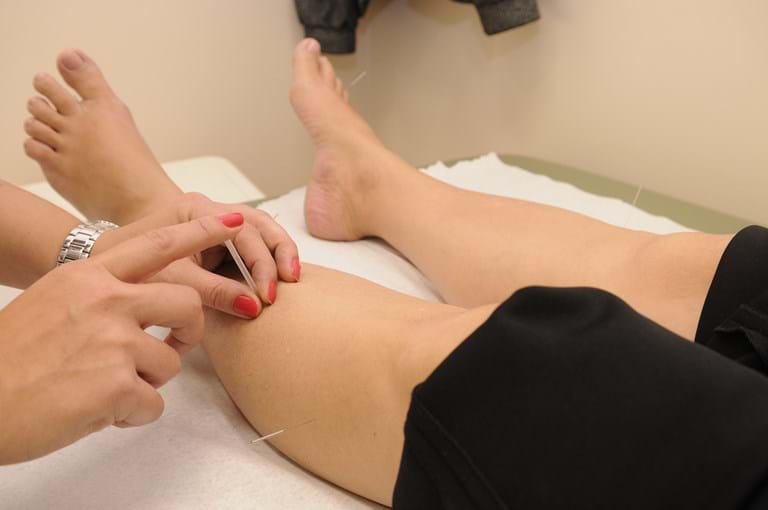Tips to Make the Most of Your Acupuncture Treatment
Acupuncture is an ancient medical treatment, thought to originate in China, that stimulates specific energy points around the body using thin needles. It’s a holistic therapy that can be used to treat a wide range of physical and mental conditions, improve sleep, balance hormones, and reduce pain.
Acupuncture should be provided and administered by an Australian Health Professionals Regulation Authority (AHPRA ) registered practitioner. As acupuncture treats the whole body, rather than individual parts and conditions in isolation, the results of treatment can vary depending on many external factors.
To make sure you get the most out of your acupuncture treatment, there are various things you can do before and after your appointment to improve its effectiveness.
Before Your Appointment
1. Avoid caffeine
It’s fine to have your normal morning cup of coffee if you can’t go without it but try to avoid caffeine immediately before an acupuncture treatment.
Caffeine is a stimulant, which can disrupt the normal energy levels of your body. A recent medical study found that even low doses of caffeine blocked the pain-relieving effect of acupuncture.
Coffee can also stain your tongue, which may affect your therapist’s ability to diagnose ailments in your pre-treatment consultation.
2. Eat a light meal
You shouldn’t arrive at your appointment feeling hungry, but feeling full and bloated won’t be beneficial for your treatment either.
Avoid heavy and greasy food, which can upset your stomach, and opt for light unprocessed meals such as rice and vegetables. You should try and eat about two hours before your appointment. Don’t turn up with an empty stomach as the treatment could cause you to feel lightheaded.
3. Relax
It is important, especially for people having the treatment for the first time can often feel nervous, which can cause them to tense up while being treated.
The single-use needles used in acupuncture are only slightly thicker than a human hair and are individually packaged and sterile. They are therefore completely hygienic and acupuncture therapists are skilled at placing them in the most comfortable way.
By keeping this information in mind and relaxing totally during your treatment, you’ll enjoy greater benefits. Many people find acupuncture so relaxing they actually fall asleep during their session!
4. Wear loose, comfortable clothing
Your therapist will need to access various points on your body so you should make sure that the clothes you wear are loose and easy to move out of the way.
Clothing that is too tight or uncomfortable can also be distracting during treatment, prevent you from relaxing completely, and can restrict the flow of energy in the body.
5. Give your therapist your full medical history
As acupuncture is a holistic treatment, it’s important that your therapist has a full picture of your health and lifestyle including any medications or supplements you’re taking, any major illnesses or accidents you’ve suffered from, any health conditions that run in the family, and details about your menstrual cycle.
As it’s easy to forget this information on the spur of the moment, it’s best to make a list before you arrive for your appointment.
After Your Treatment
1. Stay hydrated
Make sure you drink plenty of water both before and after avoid dehydrating drinks containing caffeine or alcohol.
Acupuncture can cause toxins to be released into your system so you’ll need to stay hydrated to make sure these toxins can be flushed out of your body.
2. Rest and take it easy
Although acupuncture can sometimes result in an increase of energy after treatment, it’s best to relax and take things slow after your session.
For at least 12 hours following your acupuncture session, avoid exercise and don’t make any big plans. It’s best to stay at home and indulge in some pampering – gentle yoga or a short walk should be ok.
3. Ask your therapist how often you should have treatment
You may notice the effects of acupuncture immediately, but most people will benefit from a series of appointments once a week or once a month. In some situations, it may be preferable to return for daily treatment.
Your acupuncture therapist will be able to advise you on the treatment schedule that will offer the best results.
4. Keep a treatment diary
If you’re undergoing long-term acupuncture treatment, you should take note of how you feel after each treatment as well as general information about how your condition improves or worsens depending on the time of day, what you eat, and other lifestyle factors.
This information can help your acupuncture therapist with diagnosis and more effective treatment going forward.
Find out whether acupuncture can benefit you. Book an acupuncture appointment at Performance Plus Massage today.

